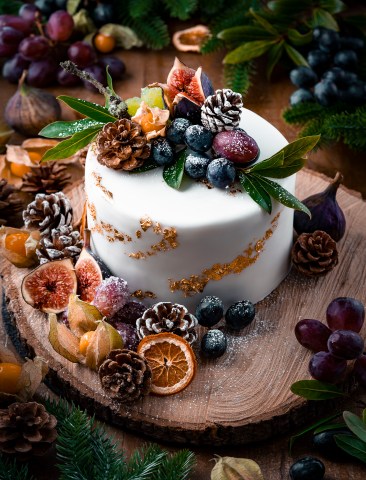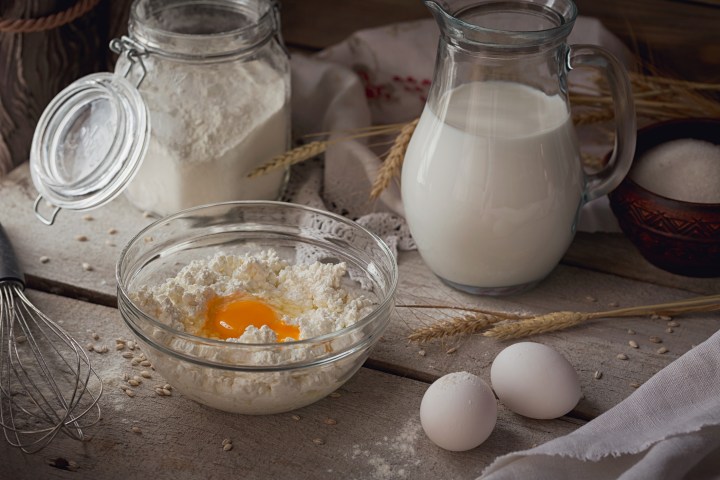How do you keep going when life kicks you in the gut? Nora McInerny Purmot shares her personal recipe for happiness
Twenty-something Nora McInerny Purmot bounced from boyfriend to dopey boyfriend until she met Aaron – a charismatic art director and comic-book nerd who made her laugh.
When Aaron was diagnosed with a rare form of brain cancer, they refused to let it limit their love. They got engaged on Aaron’s hospital bed and had a baby boy while he was on chemo. In the period that followed, Nora and Aaron packed fifty years of marriage into the three they had, spending time on what really mattered to them: Buffy the Vampire Slayer re-runs, each other and Beyoncé. A few months later, Aaron died in Nora’s arms.
Nora’s deeply moving and funny memoir It’s Okay to Laugh (Crying is Cool Too), is a love letter to life in all its messy glory. In this extract from the book, Nora shares her own version of therapy – the path she created through her own grief, towards her version of happiness.
‘Happiness is a choice that I make, a garden that I tend to every single day. And if you’ve ever seen my yard, you know that I’m a really shitty gardener, so what I am trying to say is, this is work. I do not wake up like this.’
Here is an extract taken from It’s Okay to Laugh (Crying is Cool Too).
A lot of people go to therapy when their spouse dies. Or when their father dies. Or when they have a miscarriage. I don’t know what other people do when all three things happen to them within a few weeks, but I spend ten minutes twice a day meditating with Oprah and Deepak Chopra.
I haven’t paid for the full version of the app, so ten minutes is all I get. It’s worth it, though, to have a little bit of time dedicated to quieting the dozen or so monkeys in my brain, wearing their fezzes and vests, clanging away with tiny cymbals.
I don’t know if what I am doing is meditation or really just a guided nap, but I do it anyway, repeating the mantra endlessly in my head, using those words to suppress the urge to create a mental to-do list or run through a list of failures and embarrassments from the past thirty-two years of my life.
People don’t know what to do with me. It’s hard to see someone suffer, so some people don’t see me at all, and some people rush to share their own personal recipes for happiness. My doorstep finds new packages every week: books on mourning and grief or the power of prayer. I’m given yoga passes and links to articles about ‘dealing with grief,’ like the cure for what ails me is going to be a hot take like ‘take your time, there is no rush.’
‘You know,’ my friends say casually, ‘so-and-so actually went to a therapist after her father died and she thought it really helped. . . .’ And I’m sure it did help so-and-so. And it might even help me. But right now, I’m busy cobbling together my own version of therapy, which basically boils down to letting me do whatever I want, whenever I want to.
‘Nora,’ I say, ‘do you want to remove that shitty tattoo you got in your twenties when you were trying to impress a roommate who didn’t like you? Would you like to go to yoga in the middle of the day? Get a new tattoo? Maybe get some laser hair removal? Take a trip to California? Quit your stable, steady job and be a stay-at-home mum whose one child goes to day care full-time?’
The answer is a resounding ‘yes!’ and I do it all.
I run. I do yoga. I drink a lot of wine and watch ancient seasons of Real Housewives, specifically the inaugural Orange County season that started it all, because I find comfort in a simpler time, when the world was all about Juicy tracksuits and Paris Hilton was our most controversial celebrity. I stay up until 2:00 a.m. reading, until Ralph unfailingly wakes up crying for me. He just wants to cuddle in Mama’s bed, and his slow, steady breath lulls me to sleep. He likes sleeping in, too, so our mornings are nice and lazy. Sometimes, I drop him off at day care still in my pyjamas and retainer, and curl up on the couch with coffee for an hour before I even open my laptop to work. I cancel plans with friends and acquaintances, turn inward as much as I can.
I go to Catholic mass at churches where nobody will recognize me, and I watch the faces of the faithful, elderly congregants. I want what they have: an unfailing North Star to guide them. I watch the first ten minutes of a Scientology documentary and think to myself, all right, now I can see how this would be appealing. . . . I am slightly jealous of all the recovering alcoholics in my life, with the steady rhythm of weekly AA meetings to keep them on the straight and narrow, eyes to God. I wonder how long it would take me to develop a drinking problem, or if I may already be there.
I am creating my own path through my own grief, toward my own version of happiness.
‘How do you stay happy and positive?’ people ask me. And I mean, they ask me this all the time. They ask me because they are going through big life things like husbands with brain tumours and they ask me because they are going through little life things and still cannot feel a spark of happiness inside. They ask me because if you look at my Instagram photos or take me to brunch, I seem to be doing okay, all things considered. I shower (a few times a week, at least), I put on lipstick (CoverGirl, preferably). I smile.
I don’t know what to tell them, so I try to tell them an abridged version of my story. That I was not always like this, that I learned it from watching Aaron. His happiness was innate, but mine is not. Mine is a choice that I make, a garden that I tend to every single day. And if you’ve ever seen my yard, you know that I’m a really shitty gardener, so what I am trying to say is, this is work. I do not wake up like this.
Some people have real and serious problems and should absolutely see a medical professional and maybe even take drugs. And maybe I should, but really, I think that I spent twenty-eight years as a person who didn’t know how to live, who didn’t know that happiness isn’t something that is handed to you, but something you have a hand in making, every day. It is harder than just getting up and grinding beans and brewing coffee, but it is just as ritualistic. For me, at least. And I don’t mean this in that bullshit social media way, where people love to post little memes about how happiness is a choice, like the natural way to cure depression is to just . . . not be depressed? Because it isn’t. But I’m not depressed. I’m sad. I’m in pain.
It has been four months since Aaron died. I know that this pain is temporary, but I am not in a rush to get through it. I have a friend who lost her brother and father within six months of each other, one very suddenly and one very slowly, each a jarring loss in its own way. It’s been years since she buried them both, but she sends me an email one night, when the pain in my heart is razor sharp, to tell me that it will dull in time. She acknowledges that I know this, but do I know that I might miss it someday? This pain signifies how close my father and Aaron still are, and as time passes, it will bring me further away from this sorrow, but also from the two of them. Their voices will be harder to recall, their presences harder to conjure in my imagination.
At lunch with a friend recently, I find myself crying for no real reason other than the sun is shining and he is so very alive, the way that Aaron used to be. ‘You know,’ he says after hugging me, ‘what you’re feeling is real pain. And that’s not a bad thing.”
There’s a school of thought around this, I find out (shout out to Google for giving me a PhD in Everything). There is clean pain, what actually happens to you (e.g., your husband dies, tragically) and then there is the dirty pain, the kind you give yourself. The negative feelings (I’m a terrible person, why didn’t I die?), the projections (I’m going to die alone), the anxiety around any topic at all (Should I drive in the snow? I might crash the car and die). I’ve lived a life, I realize, of dirty pain. Of hating myself and my body for no real reason. Of obsession and anxiety, of guilt over not living my one precious life to the fullest, whatever the fuck that even means. Aaron released me from that little self-imposed, self-conscious jail cell. He let me be myself, and he loved me even though I never fully put the cap back on anything when I’m done using it.
In many ways, my grief has been very public, but this pain, this clean pain, is mine. I don’t Instagram it or blog about it or tweet about it. I keep it for myself, for late nights in bed after a bottle of wine. For moments alone in the car, driving past the homes I shared with Aaron. For throwing my keys on the counter and knowing there’s no reason to call out, ‘We’re home!’ I want to keep my hand on this fire, because someday it will burn out, and all I will have to remember it by are these scars.
I have buried the two most important men in my life. I have lost a pregnancy. I have had the riptides of grief pull me out from shore in rapid succession, but for the first time in my life, I am not drowning in it.
I know that I can do it, that Aaron and my father gave me the tools I needed to live life without them. And if I need them, Oprah and Deepak are in my iPhone, waiting for me.
To find out more, follow Nora on Twitter and Instagram @noraborealis and read her blog myhusbandstumor.com.








